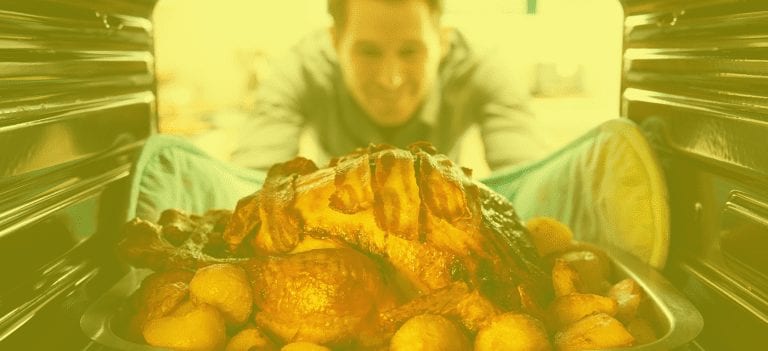Common Thanksgiving Injuries and How to Avoid Them

Thanksgiving is a time for family, togetherness, giving thanks and… possibly greater risk of injury? As emergency responders and firefighters can attest, Thanksgiving is not quite risk-free. In fact, the number of residential fires on Thanksgiving Day more than doubles compared to other days of the year. Read on to learn more about how to avoid Thanksgiving injuries so you can focus on the festive fun.
Home Fires
Fire departments in the United States responded to an estimated 1,760 home fires on Thanksgiving in 2015, according to the National Fire Protection Association. Unattended cooking accounts for approximately 40% of these fires. Keep your home safe by paying close attention when cooking your turkey and other food on Thanksgiving Day. Set timers for each dish, and avoid getting distracted by your guests, which can result in leaving ovens and stoves unattended. It’s also a good idea to have a fire extinguisher on hand in case of any cooking fires so you can subdue the flames before they get out of hand.
Another leading cause of Thanksgiving fires is deep frying a turkey. While deep frying is a great way to get moist, succulent meat, it can also be dangerous. Make sure your turkey is fully thawed before cooking. Frozen turkeys contain so much moisture that the water immediately reacts with oil, sending flames shooting into the air. Always deep fry outdoors to ensure the safety of your home, and make sure that bird isn’t the least bit frozen before plunging it into the hot oil.
Burns
When you’re trying to make five dishes at once, pulling things in and out of the oven, and grabbing pots filled with boiling water, burns are bound to happen without proper precautions. To prevent burns, be vigilant about using oven mitts and other protective equipment. Too many cooks in the kitchen can also contribute to accidental burns. Encourage your guests to socialize elsewhere to give you the chance to focus on cooking.
Minor burns can be treated with burn cream and a loose bandage. For anything that blisters or bubbles, it is wise to seek medical attention.
Knife Wounds
When you’re chopping a pile of vegetables or carving a turkey, a lot can go wrong. One of the best ways to avoid bad knife wounds is to keep your knives sharp. Dull knives are more likely to slip, leading to injuries. Always slice away from your palms and fingers to prevent cuts. If you do experience a cut, apply a disinfectant to the wound and bandage it immediately.
If you suffer a Thanksgiving mishap, remember that MedPost can help throughout the holidays. You’ll get treated and be able to get back home and enjoy that extra piece of pie. Visit our website to check holiday hours!
